|
Many years ago, the Matador Network sent me on assignment with two filmmakers to Panama and Costa Rica. We were
searching for young Americans who dared to dream of an adventurous life abroad, and more importantly, dared to act. The goal was to produce a series of profiles that would inspire others to 'break free' ...but like so many other projects with big hopes and dreams, this one never took off. We did however create a cool demo that I love revisiting from time to time, and met some some inspiring people. I captured their stories in writing, although it has never been published. Today, bottled in by the pandemic, I find myself thinking of these personal journeys, and how anything once seemed possible. It still is. I'm delighted to share these stories this month, maybe it will inspire you too. Part ONE: Breaking Free to Save Yourself Dyllan Bocas del Toro, Panama Born into wealth, talented and driven by success, Dyllan Mitchell’s life might not have been considered conventional, but the long hours and hard work were definitely paying off. After studying ballet and dance, he performed for the Lido in Paris, at Caesars Palace in Vegas, on Janet Jackson’s year-long worldwide tour. Returning to he founded a highly successful events his native South Africa, management business. Proudly gay (he came out when he was 14 years old) Dyllan also found a loving and lasting relationship with Darrion, a fellow performer. He wore the right clothes, drove the right car, lived in the right neighbourhood, and moved in the right circles. The money flowed. Isn’t that what it’s all about? At 34, Dyllan was diagnosed with glandular cancer. After undergoing intensive radiation and chemotherapy, the cancer continued to spread. Wasting away, the doctors gave Dyllan six months to live. Weighing just 29kgs, tubes up the nose, Dyllan’s light was fading. He found himself in conversation with friends, planning his own death. And then a light bulb went on. “You know what I suddenly realized? All this is bullshit. The money, the things. When you’re know you’re going to die, there’s a cataclysmic refocus on what’s important,” he tells me. With nothing to lose, he took himself off all western and allopathic medicine. He stopped his chemotherapy, all medical tests, and visiting any doctors. He switched became a strict vegetarian, and stopped eating dairy or drinking alcohol. And without any experience, he decided he wanted to sail around the world. He packed up and moved to the coast to learn about sailing, bought a yacht, and set off to find his peace. That was eight years ago. The Jackaroo is docked at the Isla Colon marina in Bocas del Toro. A wind-worn rainbow flag flaps in the wind, in sight of the Calypso Bar & Restaurant. For the last 18 months, it has been owned, operated and transformed by two unabashedly gay South African dancers, standing in almost equal height and weight, a one-two punch with zest for life at the top of the whiteboard menu. They live on the Jackaroo, their mobile wind-powered home, and have been partners for over 20 years.
None of the townfolk had met anybody like Dyllan and Darrion, and to their credit, even the local, traditionally homophobic islanders have warmed up to them. They serve up simple fare: BBQ ribs, Durban curry chicken, beer battered fish n’ chips. Occasionally, they perform a fire dancing show for diners – typically expats or visitors - to the delight of kids in tow. It’s been a while since I’ve spoken to South Africans, we’re all gaga with national pride and regret that we couldn’t be there to share the nation’s euphoria. My vocabulary rediscovers old, familiar words. “Ja bru, I’m telling you, that was lekker!” My accent becomes a little thicker, at first for fun, and then because it remembers.
“As long as I was buying into what the doctors were telling me, my belief system regulated what was happening,” says Dyllan. “I don’t think I cured myself so much as made peace with myself.” With sailing, Dyllan discovered his passion. There’s nowhere he’d rather be than on the water, under the stars, listening to his iPod. It’s allowed him to tune into himself, and his body. When he’s tired, he rests. When he needs more greens – “jislaak I’m telling you I get so tired of eating broccoli every night!” Darrion interjects. The power of positive thought has long been known, but Dyllan is quick to point out that manifesting reality has become a pop culture catchphrase, and doesn’t always take into account reality. Yes, he believes the stress of his job and his personal issues gave him cancer, but he’s not about to tell a rape victim she manifested the crime on herself. “Living with purpose is not being Mother Theresa,” he says. “It’s having a conversation with yourself. If we’re not living with purpose, we need nudges to remind us. I’m a type A personality, prone to focus on negative comments. Even here in paradise, it’s easy to be unhappy. Every day is a choice.” I spend my last day in Panama sailing amongst the islands with my new friends. It strikes me that if we can love unconditionally, as an ideal, then why can’t we live unconditionally too? Standing at the bow, my arms outstretched, warm wind blowing through my finger tips, I’m more inspired than ever. Is this what breaking free is all about? Sure, it’s not the American Dream. But every day, more and more people are showing us that this could be the New American Reality. Update: Dyllan and Darrion sold the Calypso, built a resort, successfully sold that, and now live in Panama City where they have an event venue. He remains "super good and healthy."
Part TWO: Breaking Free for Redemption
Juan Rancho Margot, Costa Rica
Juan owned a highly successful chemical company in Europe. It all came to an end with a heart attack, and the doctor's words: “Either change your lifestyle, or expect to see a lot more of me.” Juan took just two weeks to sell his company, and moved down to Costa Rica to open a fully sustainable farm, resort and educational facility that has become a model for farming practices across the country. The operation at Rancho Margot is beyond impressive. It’s the future hope for humanity. Juan looks me in the eye, candlelight dancing across his face, his long grey hair still wet from our walk around the farm in the drizzle.
“Success is going from failure to failure with renewed optimism,” he says. We talk about life, the universe, the taste of chillies. “I never really made money until I stopped working to make money and started doing the things I wanted to do,” says Juan. Now he uses that money to demonstrate how the world can be a better place. often makes it so.
Part THREE: Breaking Free for Adventure
Suresh and Christina La Fortuna, Costa Rica
It’s both presumptuous and insulting to assume that everyone needs to break free. Indeed, a common factor amongst my subjects, even at this early stage, is an adventurous spirit, a restless home life, a craving for challenges. Before my journey, I had already held several careers, lived on three continents, and travelled extensively around Europe, Africa and the Middle East. This did not however stop me from working in a high paid desk job, feeling that my potential was being squandered. Sometimes, people develop what I call Destructive Creative Habits. A dream to be a movie star, a rock star, an author. The odds are slim but that should in no way deter one trying to achieve it.
I’m standing on the edge of a stunning swimming hole, holding onto a long rope connected to a tree. The rope is knotted and slippery, but that hasn’t stopped locals and tourists from clinging onto it and swinging over the deep blue rock pool. I ask Suresh, a pioneer of adventure sports in Costa Rica, about my technique. “When do you know it’s time to let go? If I hold on too hard, I’ll swing right back into the rocks, but if I let go too early, I’ll plunge into the shallow part. “ Not unlike say, a Creative Destructive Habit, when people chase an idea so hard it ends up wrecking everything else around them. Persistence is vital, but so is timing. I shift my weight back, hold on tight, and go for it. Suresh applied an almost military- like focus when it came to achieving his goal. Fate and circumstance deposited him in Costa Rica, but ideas, passion and hard work led him to start what is now the biggest adventure operator in La Fortuna. Fate, circumstance, and a whip smart former Wisconsin politician named Christina who married him, partnered up on the business, and recently gave birth to their baby daughter, Marley. Their success owes to the right pairing of the right people with the right complimentary skill sets. Suresh is the dreamer, Christina is the doer. Before she came along, Suresh’s fledgling rafting company had gone broke four times, but he kept returning to Costa Rica, persistently saving money to keep it going just one more season. As for Christina, her restlessness took from her from local council in Madison, Wisconsin to being a TV reporter in Mexico City, to traversing up and down Latin America as a tour guide. Work brought them together, and three months after they started dating, they were married, living in La Fortuna, and building Suresh’s dream together. Eight years later, their Desafio Adventures employs over fifty people, expanding into new eco- tourism activities, farming and real estate. Desafio is a Spanish expression for challenging oneself, and has turned into a philosophy for both its clients and owners. “The first time I interviewed as a tour guide, a friend of mine gave me some advice. He said: ‘Don’t have any expectations,’” says Christina. It’s tough not to think about what might or might not happen, and yet much more positive if we don’t. Sure, we can anticipate and prepare for any eventuality, but the idea of crossing the bridge when we get there allows movement, and movement creates momentum. Sometimes, that’s all we need. Neither Suresh nor Christina thought of themselves as parents, and neither planned for a family. Yet the arrival of baby Marley has profoundly impacted their world. Everything changes with children. Priorities shift, goals readjust. Marley was born in Costa Rica, and both parents immediately felt a closer connection to the country. While they constantly battle with local corruption, misguided regulations and a general suspicion amongst locals of American expats, they also love the freedom and opportunity available to them here. “There’s always someone better, richer, smarter in the US, and the competition kills you” says Suresh. “I could never have accomplished what I have done here.” New immigration rules means Marley might not be able to get her American citizenship. She is a child of immigrants, bound forever to Suresh’s passion for rivers in Costa Rica, Christina’s passion for Suresh, and their common goal of creating an operation to safely challenge people to have fun – on canyon platforms, upright surfboards or rubber rafts and kayaks. We visit the swimming pool, drive beneath the perfectly shaped Arenal Volcano (the most active in all Central America), and stop off at a friend’s farm. Marley seems perfectly adapted for the bugs, the heat, the action. Back home, parents with three-month year old babies often don’t let them out the house. Marley is like having a new friend around, albeit one that is quiet and passionate about boobs. I learn that children do not close the door on parents wishing to break free. Sometimes, it is actually the children that provide the key. Update: Suresh, Christina and Marley are still doing well in La Fortuna. "It's still a work in progress," writes Christina.
Part FOUR: Breaking Free for Love
Connor Havana, Cuba
I connected with Connor while I was on a media tour as a guest of the Cuban government. She showed me a different side of the country, the side most tourists and don't see. I don't think the Cuban authorities liked what I subsequently wrote, and I was never invited back.
Usually, the traffic migrates the other way round. Isolated, embargoed and stuck firmly within its revolutionary past, many of Cuba’s people dream of the United States, which seemingly offers unlimited opportunities, or at the very least, the chance to participate in the global consumer frenzy they see on smuggled DVD’s. With the government’s strict control of media, information and immigration, most Cubans don’t visit the United States: they escape. Therefore, it’s extremely rare to find a foreigner, an American no less, who has decided to move to Havana. Fair-haired, freckled, blue-eyed and chomping on a cigar, it’s extremely rare to meet someone like Conner Gorry anywhere. “It occurred to me that leaving the USA is like losing your virginity or catching your parents having sex: there's no going back,” she tells me. Born and raised in New York, she gave it a go in San Francisco too, but after her sister lost her home and business just four blocks from the World Trade Center disaster, Conner decided to pack up and leave, and has never looked back. She seems to strikes up a conversation with everyone. In the local market where she haggles for vegetables, in the elevator at the museum for Cuban hero Jose Marti, at the Coppelia, Cuba’s Cathedral of Ice Cream. Her Spanish is fast and sharp. She’s used to explaining how a gringo talks the Havana talk, and doles out local pesos in Cuba’s absurd dual economy (tourists pay in Convertible Pesos, worth 25 times more than the local peso locals earn). Legally she’s in the country working as a foreign correspondent for a US-based medical journal. She’s also married to a Havana local, who happens to head up Cuba’s largest NGO. Before settling in Cuba, Conner found her niche writing guidebooks, travelling back and forth across the continent – a restlessness that seems to be a common trait for those that break free. Today she reports from the modest state-supplied apartment she shares with her husband. “My mother would ask me why I couldn’t have fallen in love with a Miami Cuban? It would have been a lot easier! I fell in love with a wonderful and imperfect man, who hails from a wonderful and woefully imperfect place. Both the man and the place are unique and intriguing and most days it feels more like a blessing than a curse. So I put up with it.” Keeping in touch with the outside world can be sporadic. Around the globe, even remote villages nowadays have high-speed internet cafes, but Cuba remains stubborn in its frustratingly slow dial-up universe. Access to the outside world is tightly controlled. Getting online is expensive and slow, but with her 56K modem, Conner still manages to publish her widely read blog: Here is Havana. It is not an easy place to live, but then Conner has not chosen the easiest path in life. Travelling on her own (she credits a self defence class as one of the smartest moves she’s made), moving to Cuba, and reporting from the front lines with Cuban doctors in the hellholes of post-earthquake Haiti and Pakistan. She’s seen things the rest of us mentally brush under the carpet, and only think about in our nightmares. Explains Conner: “One thing I've learned in my travels is that when you're down or feel despair creeping in, look to the locals. Every Cuban has known blackouts, dengue, hurricanes, drought, terrorism, and has had the boot of the United States at their neck for half a century. They work and live in conditions most can't imagine. But still they dance, laugh, share, and dream. Last week, a random woman I was talking to said to me: 'we've suffered so much. What's the point in adding more vinegar to the mix? Better to have a good time don't you think?' Yeah, I think!” There are similarities between following your dreams, and falling in love. Both present challenges that can twang the guitar strings of your heart, but both can give you a tremendous sense of peace, the knowledge that you are exactly where you are, doing exactly what (and ahem, who) you should be doing. Conner loves her husband, a man whose ideals, energy and passion she both feeds off and relates to. It’s a long way from Manhattan, but hot, crazy Havana is also far removed from the out-of-control consumerism that can trap so many of us. “This little island has held people rapt for centuries,” says Conner, who seldom lacks things to write about. “But no matter where you live, you have to take the good with the bad, and no place or person is perfect.” How many of us complain about lack of money to travel, but rack up debts on credit card? In Cuba, where goods are scarce, I am forced to reassess the power of products, and the true meaning they bring into my life. Do I need a new iPod or a new plane ticket? Would I take nightly beans and rice with the knowledge that my children will be well educated and receive top-notch free healthcare? These are complicated issues, and of course, one must take into account what I call Esrock’s Theory of Relativity. To whit: everything is relative. We all have our issues, whether you’re in New York, or Havana. But where and how you choose to deal with them is up to you. Hanging out with Conner, I realize the flip side of sacrifice is reward, but you’ll experience neither unless you toss the coin. Conner’s leap of faith to build a life in Cuba owes much to her faith in love, and her faith in herself. The interesting job and swift adapting to new surroundings came later. Are you standing on the edge, wondering if you can take your own giant leap? Perhaps we should take a page out of Led Zeppelin. “Now’s the time, the time is now,” sings Robert Plant. Ramble on. Update: Connor still lives, writes and smokes in Havana. Her long running blog, Here is Havana, is essential reading for anyone interested in modern Cuba.
Part FOUR: Breaking Free to Help Others
Robb Bouquete, Panama
We all go through stress. Here in Panama, surrounded by the dense jungle and cradling mountains of Boquete, I learn about different types of stress, and in particular, the positive impact that comes from stress with purpose. Robb Pickett has always been drawn to humanitarianism, but like many of us, he found himself working an uninspiring albeit well- paying job. His natural desire to help others was firmly on the back burner. When Hurricane Katrina devastated New Orleans, it proved to be his personal catalyst. People needed help, and he couldn’t just stand by and watch the news. Robb signed up with the Red Cross, joining an incredible 97 million volunteers worldwide who are part of the organization. As things often do when you’ve found your life purpose, Robb quickly progressed within the completely independent and non-partial Red Cross, learning just how much difference one volunteer can make. But he also felt there was a lack of organizations enabling volunteers to find suitable, meaningful projects. Voluntourism has become a travel phenomenon, yet many organizations can be expensive and difficult to deal with. “It makes no sense that you should have to pay more to volunteer and help people than to go to a resort,” he tells me on the drive from David Airport. With this in mind, he moved to the popular expat town of Boquete, and founded Global Humanitarian Adventures (GHA), an NGO with the goal of engaging and finding volunteers from around the world, facilitating their needs, and channelling their abilities into a wide range of organizations. In effect, GHA is an enabler, the pipe to connect charity and aid groups with helpful volunteers, whether they are willing to pay for the experience or not. Interestingly, Robb’s priority is the volunteer’s experience. If people have fun helping others, they’ll be inspired to continue, even after they return home, where GHA can match them with a local-based group. Robb works hard to recruit new volunteers. He makes little money himself, while relying on donated office space and housesitting
gigs in lieu of paying rent. All the while, he’s bringing dozens of different aid groups together, running the local Red Cross affiliate, working on a range of projects, and facilitating a Humanitarian Happy Hour at a local bar, getting people talking and collaborating. Here’s a guy whose passion is finding resources to help an orphanage where over 60 kids are under the care of just one or two overnight minders. Here’s a guy whose sleepless nights are about fixing schools or supporting local coffee growers or figuring out why some volunteers would prefer to party than actually get their hands dirty, and others would prefer no social interaction at all. “It’s stressful,” he says. “But it’s meaningful stress.” “I remember thinking, ‘this can’t be it. There has to be more,’” continues Robb over a glass of wine at a beautiful house overlooking the flickering lights of Bouqete and further away, the city of David. Robb is housesitting for a couple months, looking after the dogs. I have learned on my own journey that one should never underestimate the kindness of complete strangers. We talk about a reversal of priorities, how Panama's cheap cost of living means you earn less, but then you spend less. Time is valued, rather than money. “Here in Panama, people take their time. When you meet someone over coffee, you sit and chat for hours. And oddly enough you get things done,” says Tammy, a former beauty queen from Virginia. Tammy, Brian, Jim, Lisa – I meet Americans from around the USA, finding a fulfilling lifestyle in a small town in Panama. “I’d like to make a toast that nobody here is over 40, but everyone is living as if they’re retired,” says Brian. Clink clink. Sure, nobody here owns this stunning house Tammy is housesitting, and nobody here is making lots of money. Even after several failures, professionally and personally, everyone at the table agrees they are living on their own terms. The New American Dream. Right here in Panama. The next day, we pick up some coffee ice-cream for 50c. “One of the things I noticed since I turned my life around,” Robb explains, “is how excited I get about the simple things. I feel like a kid again.” A kid who loves getting his daily ice-cream treat. It’s a long way from the guy who worked in marketing for a magazine, tired and bored. He drives us around in a borrowed Land Cruiser, taking us on a loop into the mountains, pointing out schools (we’re putting volunteers in there), farms (volunteers are fixing that up) and the striking cliffs, waterfalls and jungle beauty. “I can’t believe I actually live here,” he says, under his breath. Volunteers are increasingly coming from people who live in Boquete itself, along with American, Canadian, European and Israeli travellers passing through. Robb talks about the “oh shit” moments that challenge and push us to realize our potential. At 32-years old, he’s sincere, motivated, and profoundly determined to make it easier for any one in the world to volunteer their time to help others. He has some ambitious plans, resources are tight, and he knows it’s not going to be easy. But this is the kind of stress he can live with. On the drive to my next port of call, I am reminded of anthropologist Margaret Mead’s famous quote: “Never doubt that a small group of thoughtful, committed citizens can change the world. Indeed, it is the only thing that ever has.” Update: Robb moved back to the US where he started a relief organization that serves animals and those in need in disaster areas. He's currently building a getaway in North Carolina for first responders, animal rescue teams, and those who need to unplug and rejuvenate.
0 Comments
Spring has always been the smoothest operator in the room. It is the best-dressed season, the only one that conquers the cold, yet is not about to let things get uncomfortably warm. Spring offers us hope and victory. It smells like a warm fragrant breeze, with just enough chill in the air to keep things cosy. It’s also shoulder season, propping up a summer of high prices and big crowds. The Spring Traveller knows this is the best time of year to travel, and here are some choice picks for places to travel to. Amsterdam Besides the Keukenhof Gardens, featuring its famous tulips and lilies, the canals of Amsterdam blossom with life in the spring. The outdoor patios fill up, music starts floating down from the terraces, and the city parks get busy. Much like other Northern Hemisphere cities, residents break out of their winter shell to enjoy the first real breaths of warm sunshine. Attractions, prices and accommodations get tougher with each passing week, until summer kicks in and the Spring Traveller must move on. Cuba The weather’s always great in Cuba. A little hot perhaps, but there’s always a beach nearby. With direct flights from Toronto to Havana, Canada is the number one tourist market with the largest island in the Caribbean, with over a million Canadians landing every year. Many of us are happy to laze away in an all-inclusive bubble, but popping it for a couple days will reveal a country in transition with itself and its history. Old Havana is being restored, excellent musicians seem to never stop playing Guantanamera, the rum is first rate, and the food is improving. Cuba is on the verge of a complete transformation, and if you've never been, now's the time to go. Cigar in hand, of course. Paris Paris in Spring Time. Three words, and you can smell the warm baguette, taste the Bordeaux, see a mime’s heartbreak on the banks of the Seine. Cole Porter and Nina Hagen musical tributes notwithstanding, the Capital of Romance is most alive in spring, when new relationships find their mark and old passions are reawakened. Unfortunately, spring is such a popular time of year, it signals the start of high season, and all the costs that come with it. The Spring Traveller never puts a price on love. But the Spring Traveller doesn’t have to stick around too long to get his or her fix either. Yosemite National Park What I love most about Yosemite National Park is that there are geologists who believe the oldest national park in the United States is in fact a super volcano getting ready to explode and obliterate half the country with it. So the Spring Traveller best strap on the hiking boots and get a move on, while the waterfalls are at their finest and the summer crowds are still at bay. With ice and snow melting, the rivers and creeks are flush as the forest reawakens. There’s magic to see at Yosemite Falls and Cook’s Meadow, but if it’s still a little too chilly, the Spring Traveller can always head south for warmer climes. Who knows, one day the super volcano might blow. But rest assured, the Spring Traveller will be well out of harms way. Ottawa Our national capital flaunts the gifts of a Dutch princess each spring with its own world renowned Tulip Festival. 600,000 visitors swing by the “Tulip Capital of North America”, as the Big Freeze relinquishes its hold on a grateful population. The best places to see the tulips each year are from Parliament Hill, Commissioners Park or along the paths of the Rideau Canal. In early spring Ottawa also hosts a Maple Sugar Festival, for those who like their spring sweet. While the Spring Traveller is not averse to chasing beaver tail, the next destination looks even further to towards the north. The Baltics The Baltic States of Latvia, Lithuania and Estonia are sweet discoveries for the Spring Traveller. The capital cities of Riga, Vilnius and Tallinn have medieval old towns to rival any in Western Europe, and beautiful countryside to explore too. Shops and boutiques sell fantastic art, clothing and unique knick-knacks, while each country boasts a nightlife with everything from old school drinking holes to the latest in club warfare. The Spring Traveller is not afraid to trip off the beaten path, for true beauty and adventure has a habit of showing itself in the unlikeliest of places. Victoria Victorians are very proud of their Butchart Gardens, as well they should be. Gardening is a tasteful affair, and spring is the ticket. With summer crowds yet to arrive, the Spring Traveller can enjoy the best of the gardens, followed by high tea in one of the city’s excellent teahouses. Keeping within the genteel nature of the visit, roam amongst the Butterfly Gardens, or wander down Antique Row or Mile Zero. The Spring Traveller enjoys distinctive elegance, and the allure of old world charm. As for the not too distant cousin Spring Breaker, well, he’s chugging buckets of beer with the rest of the kids in Cancun.
The US Embargo that isolated Cuba is dropping as fast as a chicken without a parachute. The country is going to change fast, which means tips like these below will probably have to be overhauled in the next 12 months. Still, over one million Canadians visit Cuba every year, making up 40% of all visitors to the country. We enjoy Cuba’s weather, its people, beaches, and some might argue, the break from our American neighbours. If you’re planning your winter holiday in Cuba, here are some handy tips. 1. The Dual Currency Cuba’s dual currency is confusing for everyone. Tourists use the Convertible Peso (CUC), while locals use the Cuban peso (CUP), which is valued almost 25 times less. Tourists can’t buy in local stores at local rates, while locals are effectively frozen out of the tourist economy. US currency is subject to surcharges and lower rates, so only bring Canadian dollars. And watch out for the common scam of being charged in CUC, but given change in CUP. 2. Your convertible peso goes far Locals working in tourism have a distinct economic advantage. Tipped in CUC, they’re effectively earning 25 times more on the peso. A few convertible pesos in tips are greatly appreciated, and often lead to significantly better service. 3. Save $25CUC for departure tax Come back to Cuba, but before you leave, don’t forget to leave the entire country a nice tip with this $25CUC departure tax. Make sure you have cash as no credit or debit cards are accepted. 4. Close but no cigar Cuba famously makes the best cigars in the world. They cost a fortune at home, and only less so in Cuba. Watch out for counterfeits, typically sold with the line of “my brother works in the factory.” Top brands – Montecristo, Cohiba, Romeo y Julietta – are expensive even at the source. 5. If you’re taking an informal tour, agree on price first Tourist dollars are the prize. Separating you from them is the contest. Always agree on prices beforehand for sightseeing, boat and snorkelling trips or prepare for extreme gaps in what you thought you had to pay, and what you actually do. 6. Bring gifts for organizations Many Canadians bring toys, stationery and clothing to give to locals. There is lots of controversy as to whether this does more harm than good. Best advice I got: tip for good service; give gifts to friends; donate to charities and organizations. 7. Internet is slow and not always available For a country that prides itself on education, the lack of Internet access is disappointing. Some hotels have slow, expensive access. The Good News: the Cuban government has set up 118 internet providers around the island. The Bad News: it will cost around $4.50 an hour - way beyond the financial reach of most locals, and wildly expensive for tourists too. This is all likely change dramatically as Cuba opens up in the coming year. 8. Tip according to local standards Here’s a guide to how much to tip: Taxi drivers: 15-20% of the fare in CUC Porters: CUC 1.00 or more if you have lots of bags Waiters: 15% Chambermaids: CUC 1.00 per day Guides: CUC 1.50 per day per person (if you’re with a group) 9. Eat in somebody else’s home Part of Cuba’s economic reform has been the opening of private restaurants, known as “paladares.” With tables set up in living rooms, patios and gardens, local chefs and homely service are wowing tourists in Havana. Cuba Absolutely has compiled an excellent list of paladares in Havana. 10. Don’t take any local money home with you Unless you want the money as a souvenir, or plan on going back in the future, try not to leave the country with any Convertible Pesos. The currency is not accepted outside of Cuba, and no bank will change it for you. Check out Here is Havana, an outstanding blog from US-expat and Havana local journalist Connor Gory.
|
Greetings.
Please come in. Mahalo for removing your shoes. After many years running a behemoth of a blog called Modern Gonzo, I've decided to a: publish a book or eight, and b: make my stories more digestible, relevant, and deserving of your battered attention. Here you will find some of my adventures to over 100 countries, travel tips and advice, rantings, ravings, commentary, observations and ongoing adventures. Previously...
July 2024
Categories
All
|

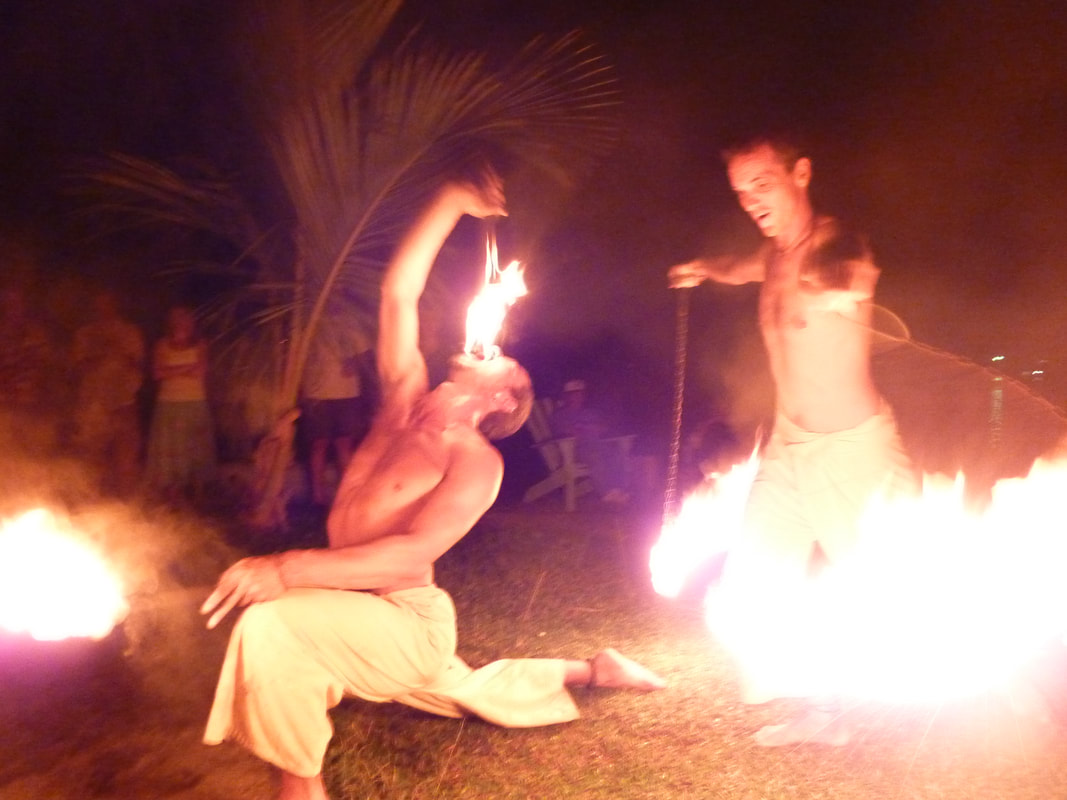
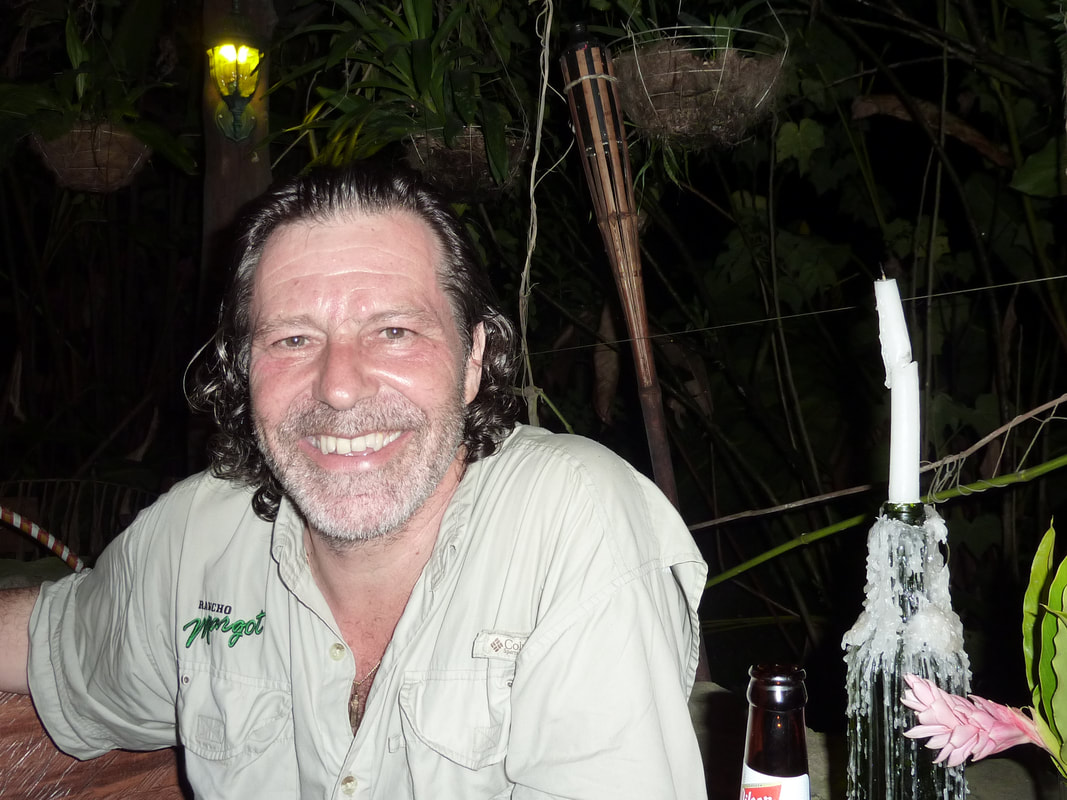
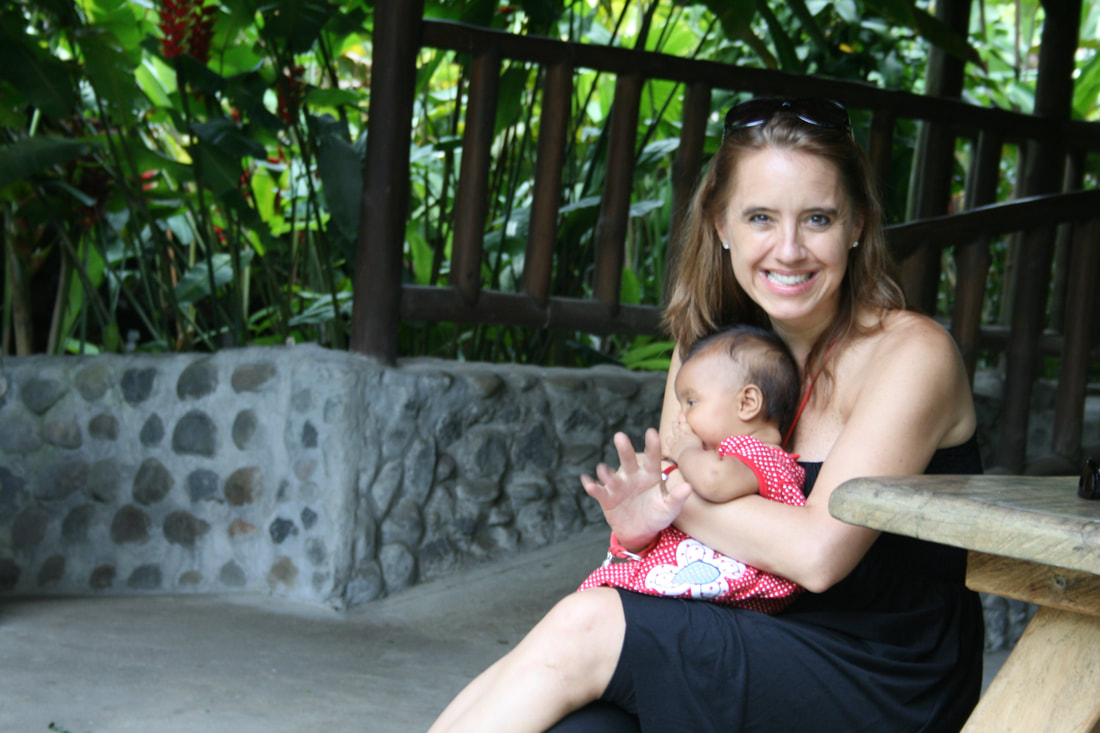
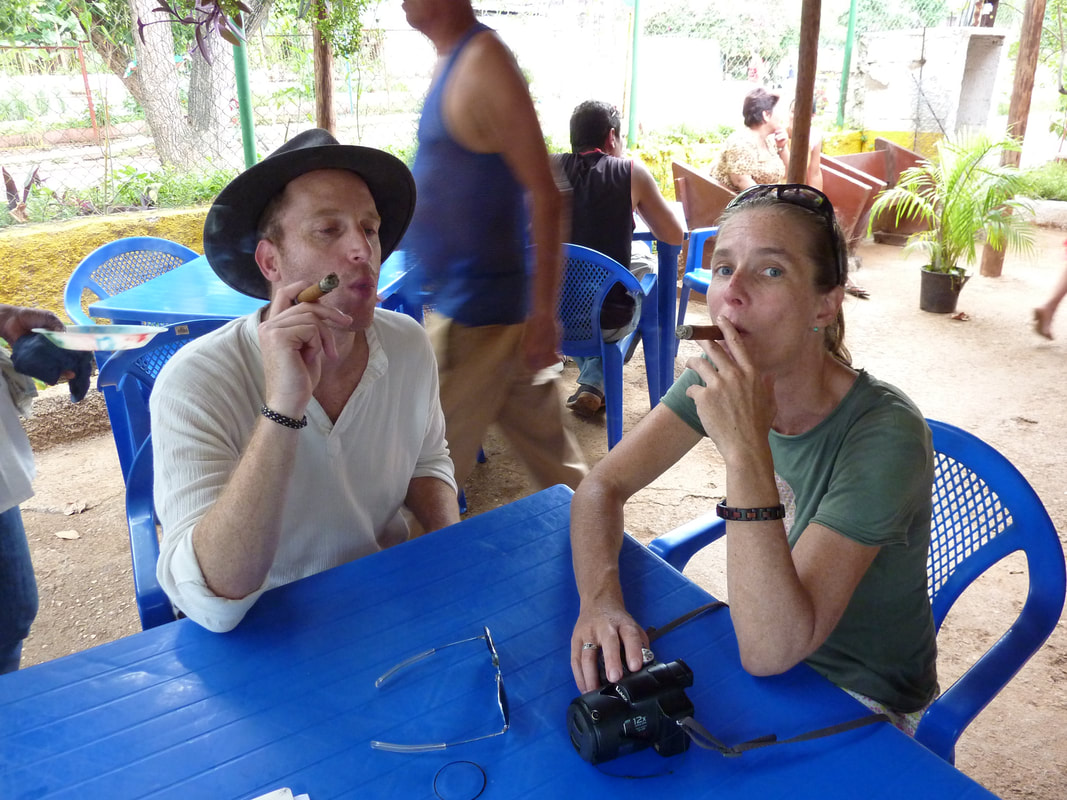
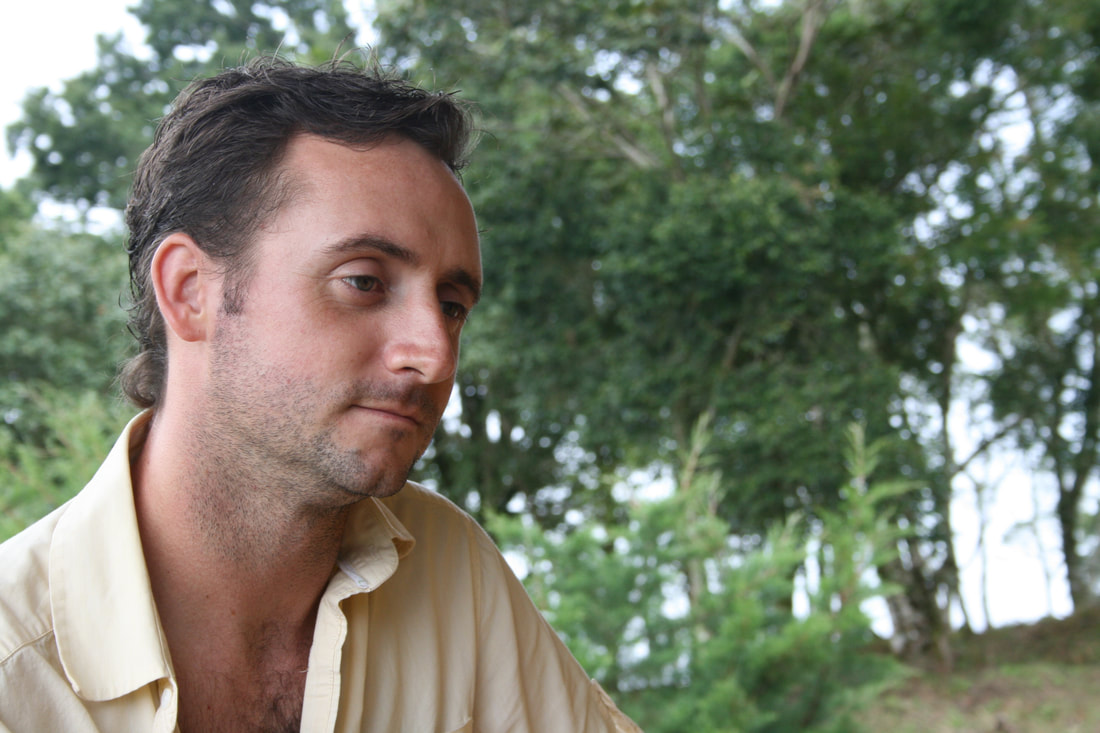
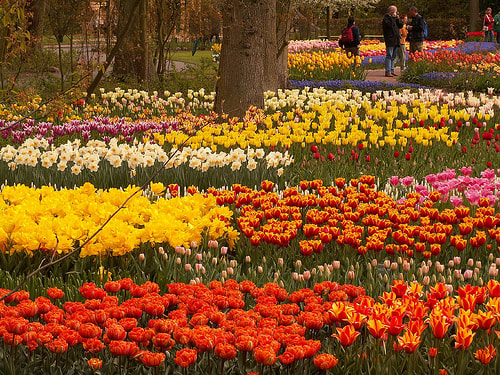
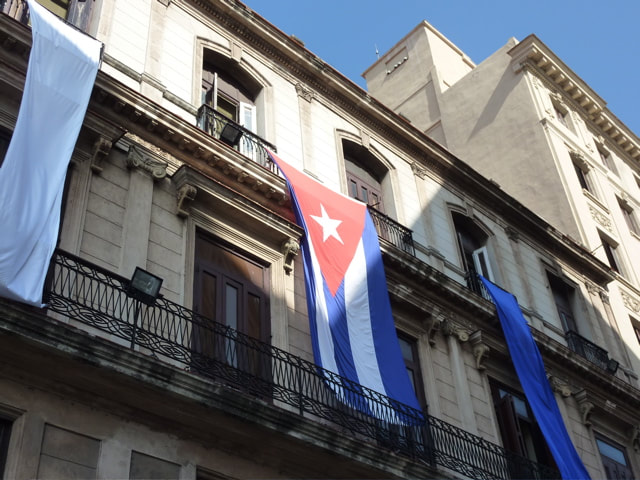
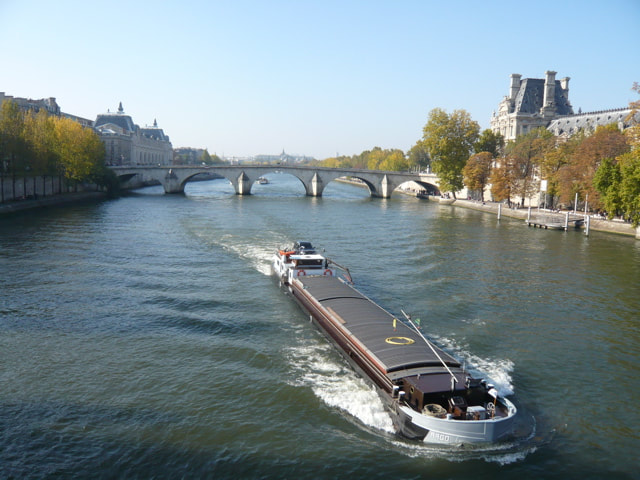
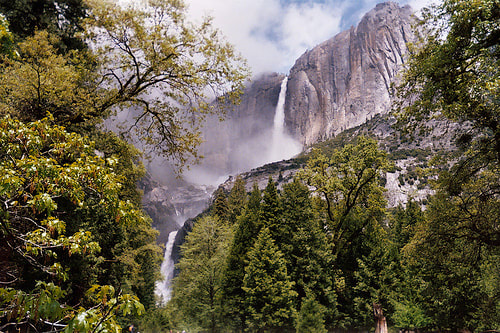
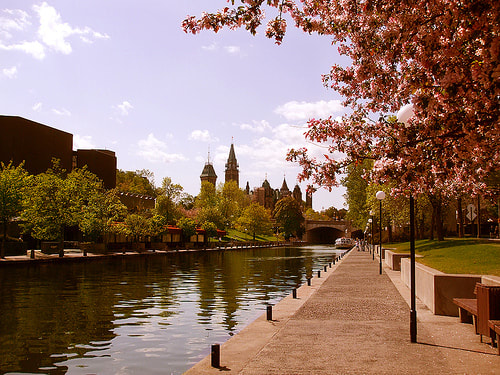
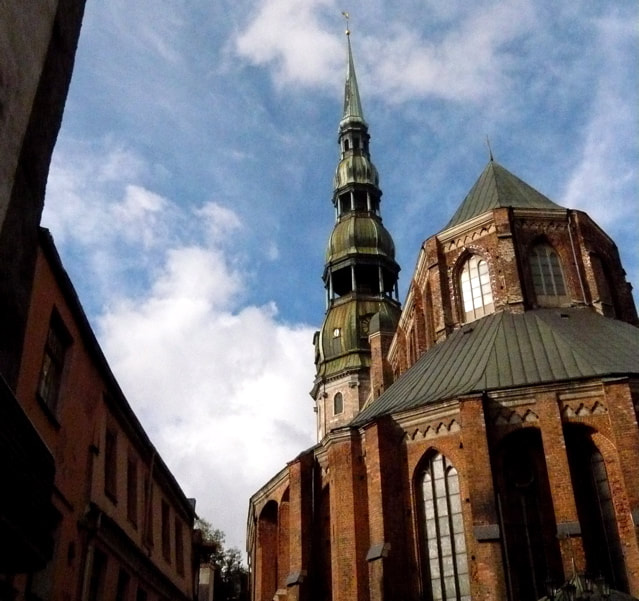
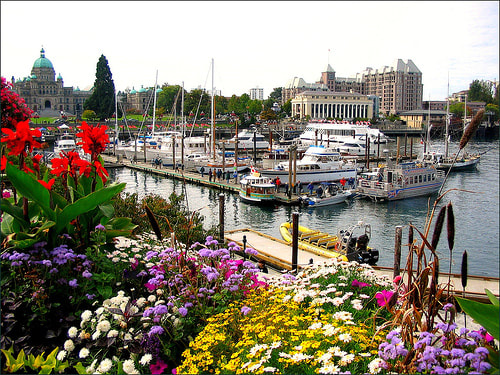
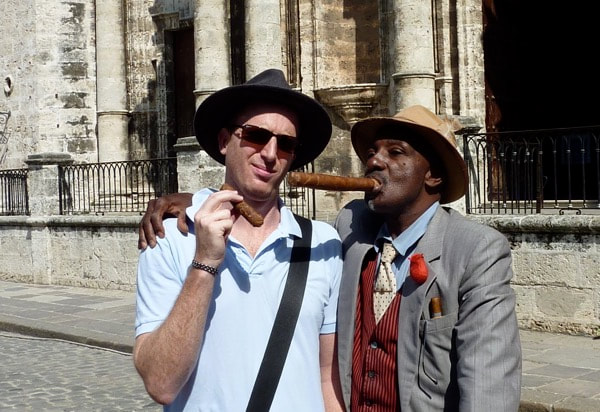
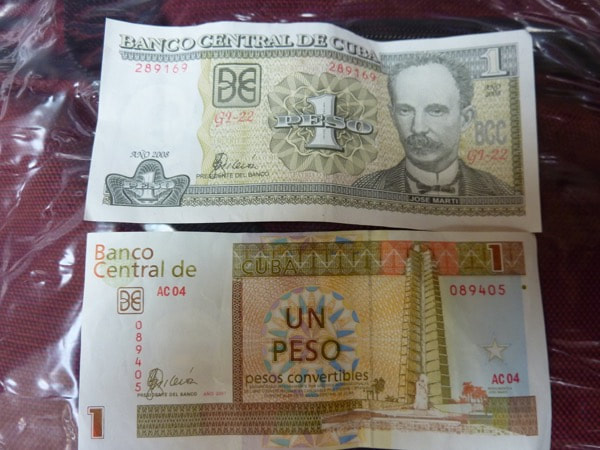
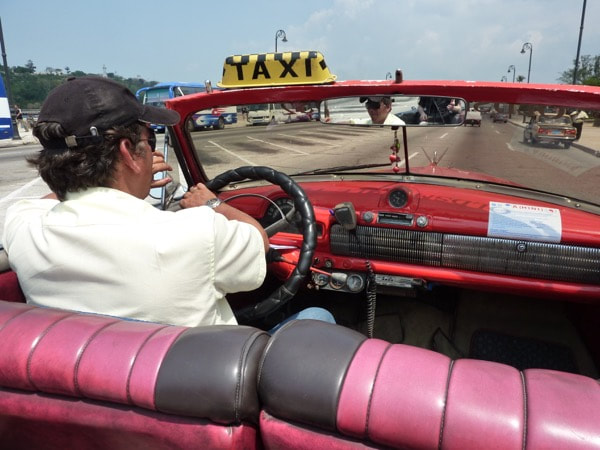
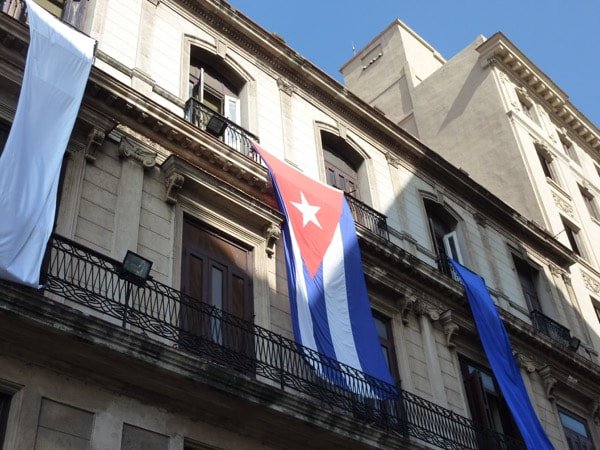
 RSS Feed
RSS Feed

